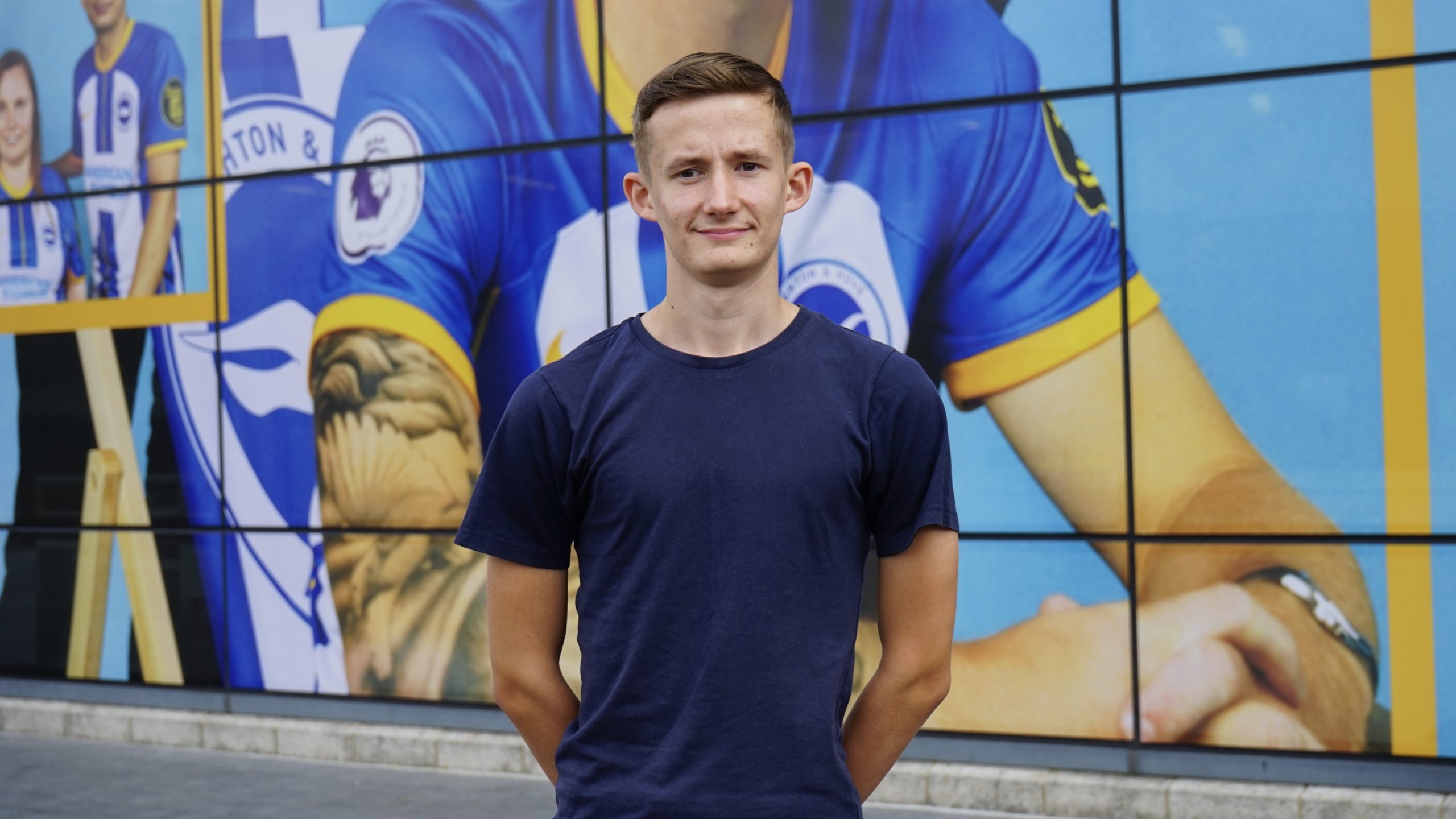In His Own Words – Jake on life as a partially sighted football fan

A piece written by Jake Heasman, a partially sighted footballer for Albion in the Community and the England national team.
Tunnel vision. This is the mentality a leader like Lewis Dunk has to have when he’s making a match-winning block to secure a crucial three points.
Tunnel vision is also something a partially sighted Brighton fan has to deal with, and not just for a 90 minutes like a Brighton player has to, but every minute of every day.
This makes it harder for a partially sighted fan to watch their favourite football team play, because they have to watch the game through a narrower field of vision.
Vocal cues are a key way Pascal Gross communicates with his team mates – a ‘man on’ shout or a team mate calling for the ball. Without these cues, football would be slower and less exciting: how can they work as a team if they can’t communicate?
Deaf football fans can’t use the same audio cues that Pascal Gross relies on. Simple situations like a conversation with a friend before the game can be challenging, let alone not being able to hear the atmosphere in the stadium swell when a player has an opportunity to score.
Enock Mwepu’s physicality is a huge part of his success, and it helps him carry out so many important interceptions and tackles. His stamina and mobility helps him to compete in the most competitive league in the world.
For fans with cerebral palsy whose mobility and movement is restricted, walking and moving around can be tiring and draining. This might mean that they aren’t able to sit on the seating row that they want to, or they may struggle to get around the stadium by themselves because of their restricted movement.
Watching football is a very different experience for people with a disability.
That doesn’t mean, however, that people with disabilities can’t relate to their footballing idols. In fact, in a lot of ways we can relate even more.
Referring back to the tunnel vision, a partially sighted football fan has the same tunnel vision mentality as Lewis Dunk – except they have to cope with the visual disadvantage as well as using this mentality all the time to achieve their goals.
This just shows the resilience a partially sighted football fan has to have to achieve their life goals and, despite it being a tough challenge at times, to watch their favourite football team play.
A deaf football fan also has more in common with Pascal Gross than a fully hearing fan.
When Gross is taking corners or free kicks, he gives visual cues like raising his right arm to signal where he is going to play the ball, giving his teammates on the edge of the box a chance to run in and score a header.
Deaf fans have a very similar experience; they use sign language to communicate through visual cues to express their thoughts and feelings (excitement, joy, sometimes maybe frustration) when they’re watching football.
Despite facing a barrier like this they use their creativity, just like Gross, to find another way to communicate and create their own atmosphere during a match.
Again, despite the challenges a football fan with cerebral palsy may face, there are ways to think about the ‘negatives’ from a different perspective.
For example, the fan might feel that sitting at the bottom of the stand is a bad thing because of their restricted mobility. Another way of looking at it – you’re closer to the pitch than anyone else, almost close enough to reach out and touch your idols.
By sitting that close you could hear conversations between the players on the pitch, and see things that no one else in the stadium possibly could.
Therefore, despite not having the same mobility as Mwepu, the fan is almost in the same position on the pitch as the player himself because of how close the seat is to the pitch.
We all face barriers in our lives, and people with disabilities have to overcome more barriers than most. However, it’s important to remember that something we might see as a barrier at first, actually opens up another door for us.
So, you could sometimes say, having a disability can be more of an advantage than a disadvantage.
Jake Heasman
This story was written when our name was Albion in the Community. As of August 1 2023, we are the Brighton & Hove Albion Foundation.

